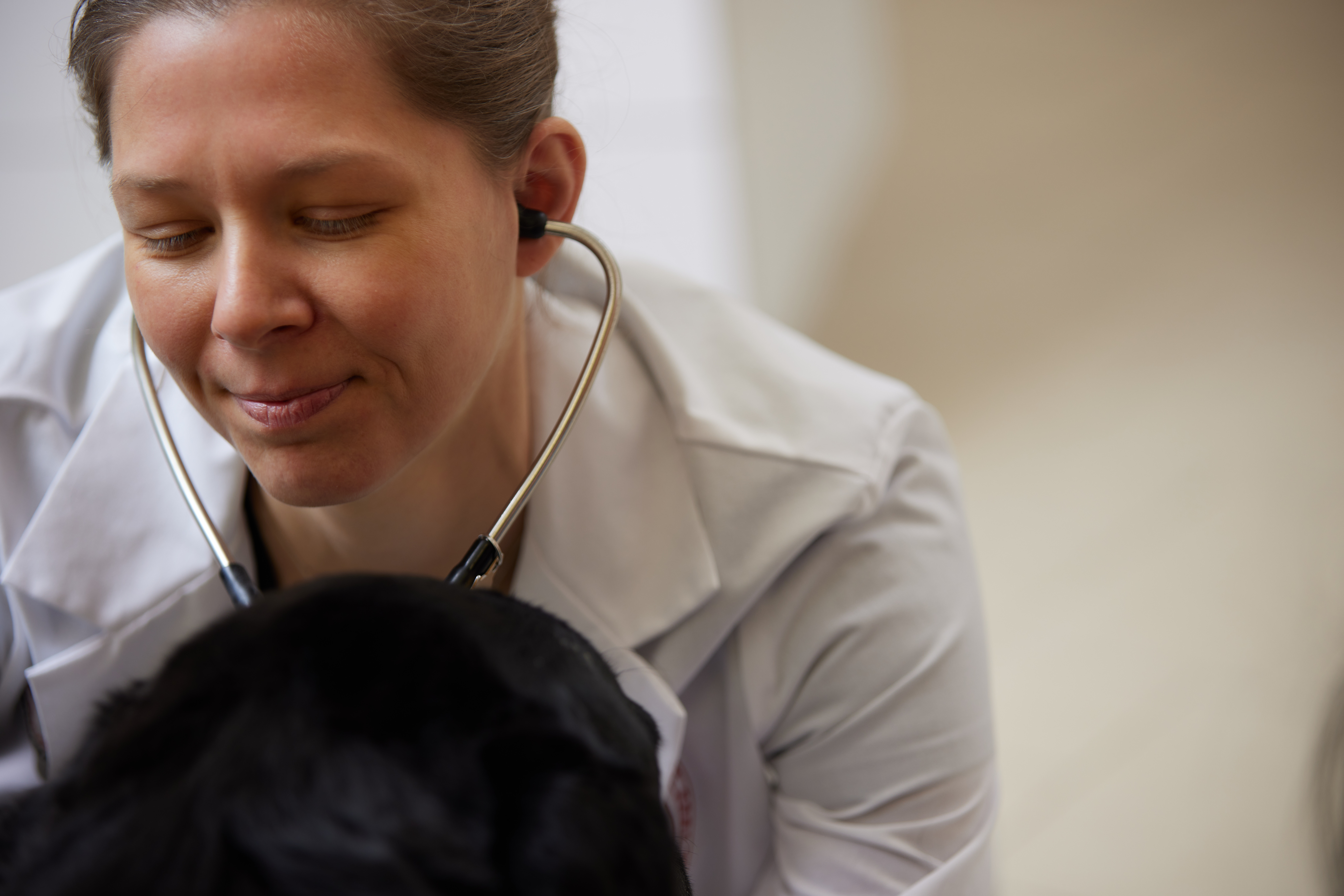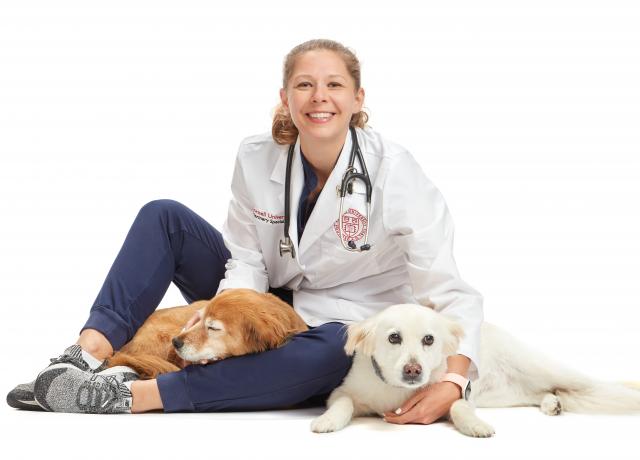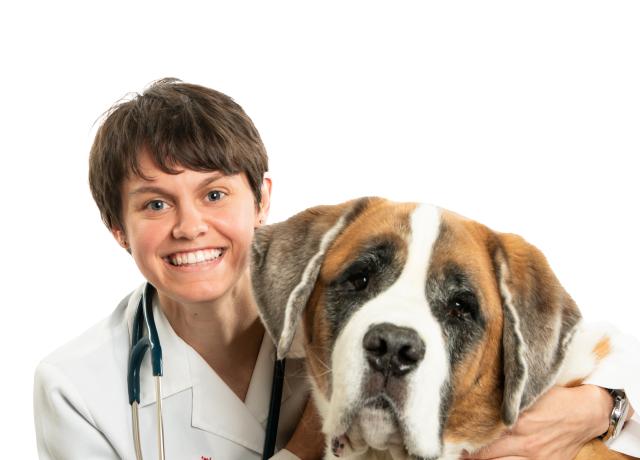Oncology
Oncology
With recent advances in veterinary oncology for cats and dogs, pets and their human families have more options than ever - and greater hope - when it comes to treating cancer.
At CUVS, it’s part of our mission to make these latest advances available to our patients. As a pet owner, you’ll be glad to know that here you’ll find the expertise, information and support you’d choose for yourself if faced with a potentially life-threatening illness. And it’s all delivered with the utmost care and compassion.
Here’s what you can expect from us:
Education and information
We understand how difficult a diagnosis of cancer can be, and weighing your pet’s treatment options can feel overwhelming. At CUVS, we’ll help guide you, setting aside ample time to ensure you have all the answers you need to make a well-informed decision that’s right for your pet and your family. And should a question arise once you’ve returned home, we’re always just a phone call away.
Support
We’re here for you. You can reach our Oncology Department via phone or email with questions or concerns, and our Emergency-Critical Care Department is here around the clock to manage emergencies.
Medical expertise
You and your pet not only benefit from the expertise of our board-certified oncologist, but we also collaborate with other specialists at CUVS, faculty at Cornell’s College of Veterinary Medicine and Weill Cornell’s Oncology Department—ensuring the most up-to-date diagnostics and treatments.
Quality of life
Your pet's quality of life is the most important factor in choosing a course of treatment. We’ll help you evaluate all treatment options, as well as your pet’s prognosis and comfort level, to find a treatment plan that best serves your pet.
Optimal care and outcomes
Cancer is a complex disease that can affect multiple body systems. It also tends to develop in older pets with other medical problems. As a result, optimal care addresses not only the cancer, but the whole patient. That’s why our Oncology service works closely with other specialists at CUVS to coordinate cancer treatment. These other specialists can include surgeons, criticalists, nutritionists and pain management experts.
Collaboration
Your pet’s medical team extends beyond the Oncology service at CUVS. Your primary care veterinarian, you and your family, and any other specialist who can contribute to your pet’s overall wellbeing are also essential members of the team. We coordination communication with everyone, and your primary care veterinarian has real-time electronic access to your pet’s medical records, lab tests and imaging studies.

The Services We Offer
At CUVS, we have all the latest modalities to diagnose and treat cancer. They may be used alone or in combination, depending on your pet's situation and your goals. These modalities include:
- Diagnostic imaging (ultrasound, CT, endoscopy, fluoroscopy).
- Minimally-invasive aspirates and biopsies.
- Chemotherapy, which uses drugs to kill cancer cells. Most of our patients tolerate chemotherapy well with few, if any, side effects. Depending on the tumor type and the chosen course of treatment, chemotherapy can be injected into a vein, a tumor or a body cavity; it can also be given by mouth in some cases. Treatment protocols vary from daily to monthly, depending on the type of cancer and intent of therapy.
- Immunotherapy, which stimulates the body’s immune system to fight cancer, may be used in some tumor types, and is well tolerated with minimal to no adverse effects.
- Surgery to remove a cancerous tumor is often the first line of cancer treatment. Our oncologist works closely with our board-certified surgeons, who are experienced in surgical oncology, to design and coordinate treatment plans.
- Comprehensive pain management is essential for a good quality of life for cancer patients. We tailor a pain management plan that may include drugs, physical rehabilitation and/or acupuncture.
- Nutritional support by a board-certified nutritionist.
- Acupuncture.
- Palliative care. Our main goal in treating your pet is to maintain a good quality of life for as long as possible. When treatment stops working, or if you choose palliative treatment alone, there are a variety of options available to help keep your pet comfortable, including pain medication, appetite stimulants, anti-nausea/antidiarrheal medications, and acupuncture.
- Radiation therapy referral and coordination of case management.
The Types of Cancer We See
Our Oncology Service treats a wide range of both common and rare cancers in pets, including:
- Apocrine gland adenocarcinoma
- Fibrosarcoma
- Gastrointestinal and pancreatic cancer (carcinomas, gastrointestinal stromal tumors, intestinal sarcomas)
- Hemangiopericytoma
- Hemangiosarcoma
- Histiocytic sarcoma
- Injection-site sarcoma
- Lymphosarcoma or Lymphoma
- Leukemia
- Osteosarcoma and other primary bone tumors
- Lung tumors
- Mammary tumors
- Mast cell tumors
- Melanoma
- Multiple myeloma
- Plasmacytoma
- Soft-tissue sarcoma
- Squamous cell carcinoma
- Thymoma
- Thyroid carcinoma
- Transitional cell carcinoma
Our Doctors
To make a referral or to schedule a consultation please call 203.595.2777.



